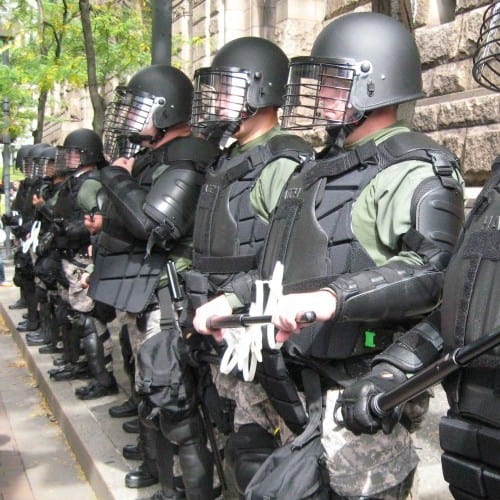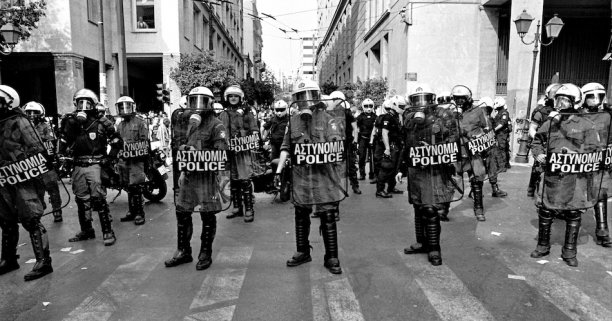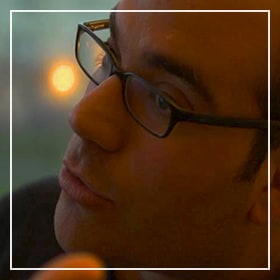Worried by the current crisis affecting the Eurozone and many other parts of the world, we also sometimes feel disempowered by our lack of deeper understanding of the mechanisms that have triggered such devastating developments. Some time back, Allegra started to explore the financial world (here), the current transformations of Universities (here and here) as well as the power and failures of bureaucracies (here). Today, Julie Billaud interviews Dimitris Dalakoglou on state, violence and public spaces in Greece.
 ALLEGRA: Dimitris, you are a Senior Lecturer at the University of Sussex. In the past you have studied highways and infrastructures and currently you are carrying out a research project entitled « The City at the Time of Crisis », funded by an ESRC Future Research Leaders grant. Can you briefly introduce yourself to those who are not familiar with your work and describe your projects?
ALLEGRA: Dimitris, you are a Senior Lecturer at the University of Sussex. In the past you have studied highways and infrastructures and currently you are carrying out a research project entitled « The City at the Time of Crisis », funded by an ESRC Future Research Leaders grant. Can you briefly introduce yourself to those who are not familiar with your work and describe your projects?
DIMITRIS: For my PhD I studied anthropologically political transition via infrastructures and vice versa. More precisely I studied the main cross-border motorway between Albania and Greece and via that peculiar -at the time- ethnographic site I studied in a new way -via the road and its flows- the postsocialist conditions in the Balkans. By extension this study of infrastructure provided an insight into the materiality of the wider European neoliberalisation project.
We have to understand that the project of European neoliberalisation of the 1990s and 2000s passed precisely via a mass development of built environment in the continent. Moreover an additional element of that process was the re-determination of European boundaries and a related inter-European movement of populations which crossed these re-determined borders. Indeed, the replacement of State-run economies by market-based capitalism in half of the continent and the parallel expansion of Western European capitalist interests in Eastern Europe had a crucial role in this neoliberalisation project. So given this context the cross-border road between postsocialist and non-socialist peripheral European states looked like an ideal ethnographic locus for analysing such process anthropologically.
Today we are seeing one more stage of that neoliberalisation process with a capitalist crisis centered on the periphery of Western Europe.
In 2012, together with a team of colleagues, we started the ‘City at the time of Crisis’ project funded by ESRC. In this project we study the new forms of governance implemented in that periphery of Western (as political determination rather than geographic) Europe. A basic idea is that one of the most important parts of this new form of governance is the transformations of the notions of public. So ethnographically we study political transitions and social change in the form of socio-spatial changes in the public urban and infrastructural materialities of Athens.
ALLEGRA: You seem to suggest that Athens is the ideal ‘laboratory’ from which to observe the global financial crisis. In their recent book, Theories from the 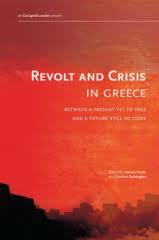 South, the Comaroffs argue that it is rather the global South that is best placed to help us understand contemporary world transformations. The obvious fact that you are Greek put aside, can you tell us why you chose Athens as your primary site of inquiry?
South, the Comaroffs argue that it is rather the global South that is best placed to help us understand contemporary world transformations. The obvious fact that you are Greek put aside, can you tell us why you chose Athens as your primary site of inquiry?
DIMITRIS: The Commaroffs are right, but they are also wrong. The reality is that we first saw extreme capitalism being applied in the global South. Gradually, more advanced and elaborated versions of capitalism were applied there. However, a very similar version of extreme neoliberalism -like the one that emerged in the 1970s in the South- was then applied in Eastern Europe in the 1990s. Now it is the turn of the Western European periphery to experience a similar regime.
The anthropologists who happen to have ethnographic knowledge of both the postsocialist and non-socialist European periphery would be able to confirm the similarity between e.g. the loan and “aid” agreements between EU and postsocialist states and the current agreements between e.g. the Greek or Spanish governments and EU institutions.
So in the current historical stage it is not only organisations like the IMF: there are other institutions involved in the shaping of the world political economy. For instance the EU leadership and especially the European Central Bank along with several other European banks play a crucial historical role in the expansion of an extreme neoliberalist form of governance that is applied in the crisis-ridden euro-zone countries. More and more populations are subjected to that regime and what we used to call Global South governance extends well beyond the South. So the category itself is a bit problematic.
As I mentioned in the previous question Greece is centrally located in a process of global proportions that is unravelling at this very moment. Greece’s centrality in this project starts from the re-definition of Greek borders which changed radically after 1990, given that it was surrounded by socialist European countries. Phenomena like migratory flows, big construction projects and capitalist expansion of Greek capitalist entreprises in Eastern Europe just complete this picture.
Under such circumstances the anthropology of Europe and European politics keep asking the same questions since the 1990s: How did the continent change after the collapse of socialism? What will come next? These questions are very similar to the ones we ask about e.g. China or India and especially North African countries.
The end of the cold war has led to radical transformations globally and we are still seeing them in front of our eyes. If European communism had really been the point of reference for the Left everywhere we would not have the squares movements occuring around the Mediterranean. So it is not a process that is detached from what is happening in the so-called Global South. Overall I think that unless anthropology starts including more substantially Europe and the West in its own perception of the world we will end up running behind change.
ALLEGRA: A few weeks ago, ALLEGRA launched a discussion on the future of universities, and tried to define the nature of the ‘space’ that current movements against cuts are seeking to preserve. Some of our conclusions were relatively optimistic, in the sense that we also tried to highlight the regenerative potential of the public to achieve positive change. In the past when ASA asked you to write a text on the crisis of higher education you jumped to similar conclusions. However, seeing your more recent work you seem to suggest that the current global crisis has deeply transformed notions of ‘public space’, ‘public good’, ‘public interest’ and so on…to the extent that the public as we used to know (or fantasize?) it seems to be slowly disappearing. To a certain extent, one is left with an impression of Athens as a city under a permanent state of exception, to use an Agambian expression. What has changed?
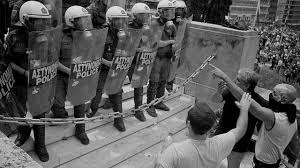
DIMITRIS: Since you used the term of a political philosopher I will respond with a political answer. In that ASA article I concluded that higher education in Britain does not deserve to be defended for what it is or what it was, but for what it may potentially become. I guess this applies in the case of Athens and Greece as well.
In the last two decades, as European neoliberalisation reached a more intensified form, we saw some of the resistance movements in the Western world romanticise or imagine a capitalism with better public social provisions. Much of the Occupy movement in the US had such demands, while many of the European movements suggest a return to a recent past of better social provisions. While I see the value of these benefits for the better quality of life of many, as a political proposition I think that implies a crucial mistake. If the middle classes of the Western World had a better life during the recent past, the majority of the world, the poor in the West or globally had very bad time.
The issue is that the current crisis is quite crucial for the evolution of capitalism in Europe and probably globally, and as we know in anthropology crises signify a transition while they also provide a window for anti-structural events to take place. This is our case at the moment and unless societies come up with a radical alternative (way forward from just better social policy) the future of European people will look very bad.
I think that the potentialities of the crisis are visible to economic elites and state authorities who are trying to make sure that no anti-structural events will occur. This is the reason why they employ some of the most violent apparatuses, like e.g. extreme police violence or armed neo-Nazi groups.
For example when the large anti-austerity and anti-governmental movement in Greece appeared in the summer of 2011 the police brutality was profound. Soon the neo-Nazis were funded with huge amounts of money and were activated on the streets of Athens but also electorally.
Neoliberal governance since its birth was ready to employ fascists such as Pinochet or go to fascistic extremes such as declaring national wars out of the blue like e.g. Margaret Thatcher did in the case of the UK or her social democratic offsprings did with Iraq and Afghanistan.
Researching the use of extreme violent apparatuses in Greece these days might make you pessimistic. In order for the austerity experiment to work, in order for the bankers’ interests to be protected, the current form of governance in Greece is ready to spill a lot of blood. A similar escalation in state’s violence has been seen in Britain in the last couple of years when the student movement emerged: police brutality against the protesters has been profound in recent British history. We even saw the police being invited on campus to arrest protesting students: I personally saw it twice in my university, Sussex, and I have worked there only for only five years!
ALLEGRA: Your work brings an important contribution to the scholarship on statehood, by documenting changing everyday experiences in public spaces. With the mass privatization of public infrastructures, it seems like the only means left for the state to manifest itself is through violence, symbolic or real. What do you think is remaining of the state in Greece today?
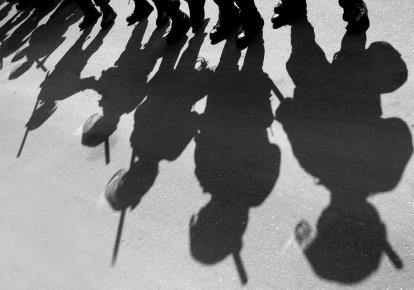
DIMITRIS: Well, violence is a crucial part of statecraft anyway. Even the most democratic socialist or mild state mechanisms have used and/or use apparatuses of death and pain. For example, one of the most quoted of such examples: the Swedish state was force sterilising women until the 1970s. For another example, we have to remember that every state apparatus discriminates against people: citizens and non-citizens alike.
As the history of Europe shows in the best case scenario such division just implies less rights for the non-citizens and in the worst case scenario it implies exterminating non-citizens massively.
Even the most democratic states are still states and have the monopoly of legal violence, so potentially the state authorities or their agents can crash, kill, torture, and imprison any of us at any moment they will decide. They do not have necessarily to do it, but the fact that apparatuses are ready to do so is violent enough. And indeed these days they have a nice army of journalists, academics and so on who will provide good excuses about public order and social peace that need to be restored.
When the revolt of 2008 happened in Greece you had people like Greek Yale professors up to famous journalists supporting the government and indirectly excusing the police assassination of a teenager, and this is precisely what triggered the revolt.
Within this barbaric mechanism modern states provided various things to their citizens and selected citizens from other states to become part of the national body. That happened for many reasons, which I do not have the time to analyse at the moment. However, such provisions maintained some kind of social peace and consent between the State (or what we imagine to be the state) and a critical mass of state residents.
So in our case, EU citizens and migrants with visas probably had a better life at some point, but a substantial part of the population was faced with a state that did not even give them the right to exist, that arrested them, deported them and killed them. The same dynamics stands for the new poor, for example: many young people in Europe mainly experience the state as an apparatus that deregulates labour and that makes sure that the majority will work like slaves for small salaries, will have no job or social security etc. If they protest, the state will beat them up or in some cases may even kill them just for being around a protest, as Metropolitan Police did with Ian Tomlinson a few year ago. It is just that today we see this state of exception expanding towards social groups who have not had direct experience of state as violence before.
And certainly we are in a very difficult position, because the state and the capitalist market have ended up being the main controllers of social provisions, so now that state policies enforce poverty and austerity and fewer and fewer can afford private provisions, we see suffering of important proportions of the European population. This has been a usual phenomenon outside Europe though and among the non-citizens within Europe!
What one should stress is that the last few decades when the state has been as social provider have been nothing more than a happy break in the history of capitalism, based on the fear of social unrest.
Today that states have achieved so advanced repression and silencing mechanisms, is probably what allows them not to find it necessary anymore to provide social provisions. Anyhow, Western European middle classes as consumers of the products of global capitalism lose their significance given that we have new consuming classes emerging in other places of the planet. So their future is that of most Eastern Europeans: lots of work for peanuts, extreme inequalities etc. When it was happening there very few Western Europeans complained or protested against the barbaric form of postsocialist capitalism.
Indeed while European states decrease social provisions to the citizens in a drastic manner and provide only violence for non-citizens, simultaneously great proportions of state’s wealth is chanelled to global financial institutions and other corporations through various paths.
To end this answer with a final note though. I think that when the elites start busting their cards one after the other, namely when the police violence is not anymore enough to control social disappointment and rage and they have to use the para-state neo-Nazis apparatuses, we are in a situation where they are running out of legal responses, running out of cards, while running towards a potential dead end.
ALLEGRA: Michael Herzfeld, in his now famous books The Social Production of Indifference, argues that Greeks have always maintained some kind of indifference or at least, some kind of distance towards the state. In which ways does your work confirm or contradict this argument? How has the current crisis transformed citizens relationship towards the state? Is this pattern illustrative of broader transformations taking place in European/Western democracies?
DIMITRIS: Herzfeld’s question was phrased in the right way, one could summarise it like this perhaps: If Greeks are generally polite and welcoming people how comes when they become civil servants they are so unhelpful? My take on that phenomenon can be summarised like this: generally people are polite and nice until State and other power apparatuses intervene. For example when the civil servant’s role provides them with e.g. three options to the way s/he will treat a citizen and all three are nasty options, going for the least nasty one is actually a good option. At the same time remember that the official state does its best to create obedient people who will follow the rules.
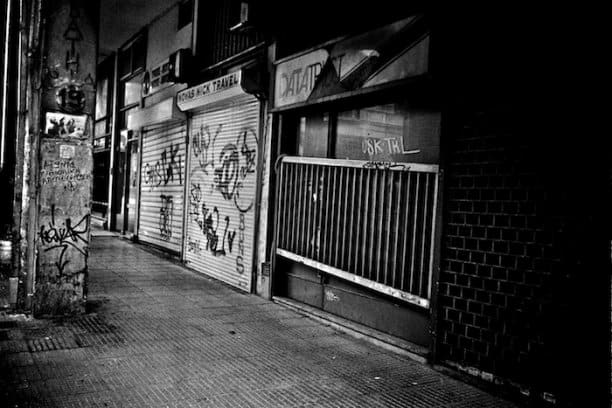
It is like the banality of the evil argument of Hannah Arendt who suggested that some of the people who carried out the Holocaust were just civil servants who saw the mass extermination of people as just doing their job, like they would do any other job. They were good civil servants.
Back in 2011 when the people in Greece rose against the government, more than 500 people were hospitalised only in Athens due to police brutality.
Last summer when I was in Gezi park in Istanbul, I saw how Turkish policemen attacked the camp beating up people while, in the meantime, they were chatting and having cigarette breaks. Similarly in London, when Occupy London started in front of St Paul, the riot cops brutally attacked peaceful demonstrators without any reason, when 10 minutes before they were queuing next to each other in front of the same toilet in a nearby cafe. While I do not consider police or Nazi officials as simple civil servants, the reality is that the modern state apparatus filters and fractures its violence so much that the actual state’s employees/attackers often feel that they are merely serving the state and the government that feeds them. Indeed the state makes sure that they can do whatever they want, that they are fully potected and that they will never have to face the consequences. Most Nazi officials never paid for their crimes and quite a few of them were happily integrated in capitalist post-war state apparatuses. This does not imply that police officers who beat up demonstrators or shoot migrants are innocent. Only certain kinds of people can remain silent under such circumstances or blindly obey orders. So this is not an excuse: it is just an analysis of the production of indifference.
The reality is that civil servants (with the exception of riot police!) are on the forefront of salary and personnel cuts in Greece these days. The same mechanism that was programming them to misbehave, by e.g. giving them few resources, poor training, unjust promotion or employment system, poor and misleading explanation of tasks and roles etc. is the same mechanism that now blames them for doing what they were told to do. In other words everyone, even the cops are just consumable for the political and financial elites. So people do come to a realisation with great potentialities, as far as insecurity and state violence reaches one of the most secure social class such as permanent civil servants, there is a discontinuity in the continuums that have made the system sustainable so far.
All pictures and video: Ross Domoney for crisis-scape.net

